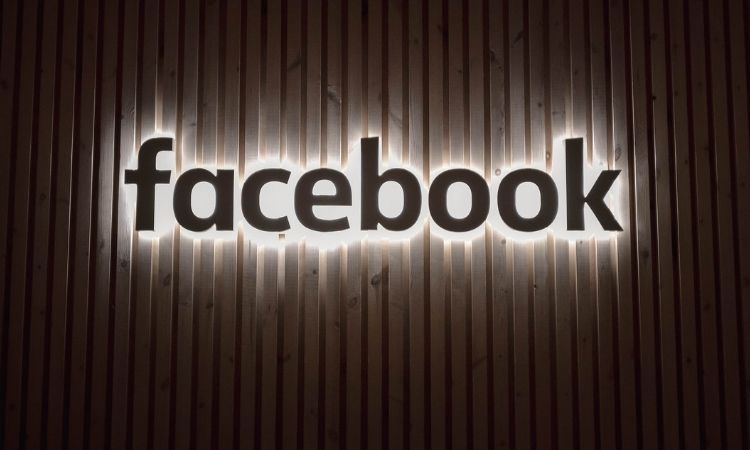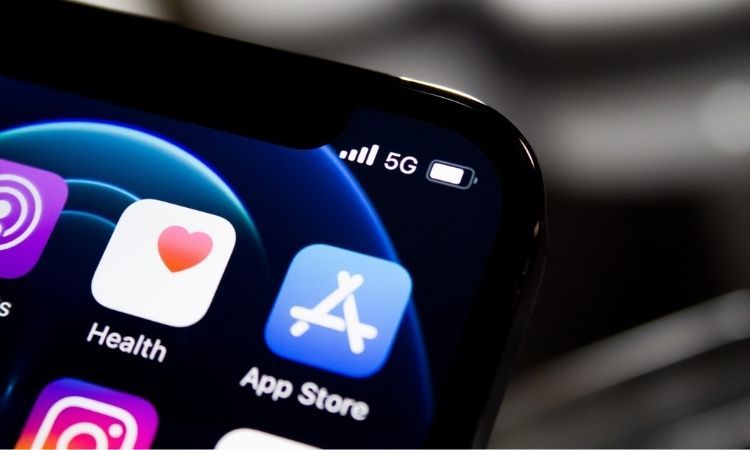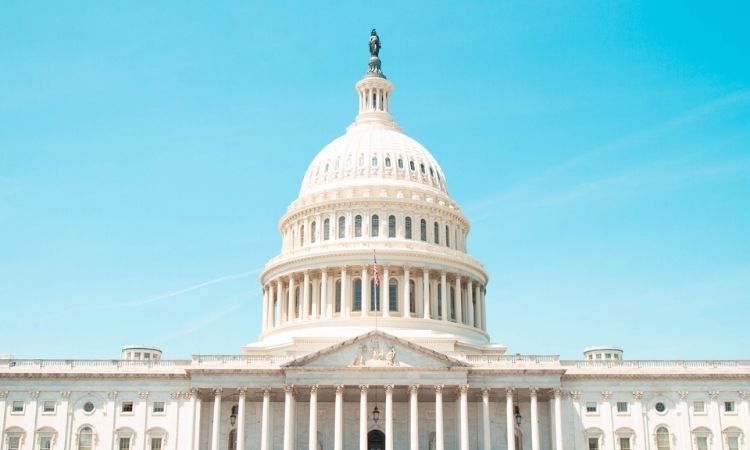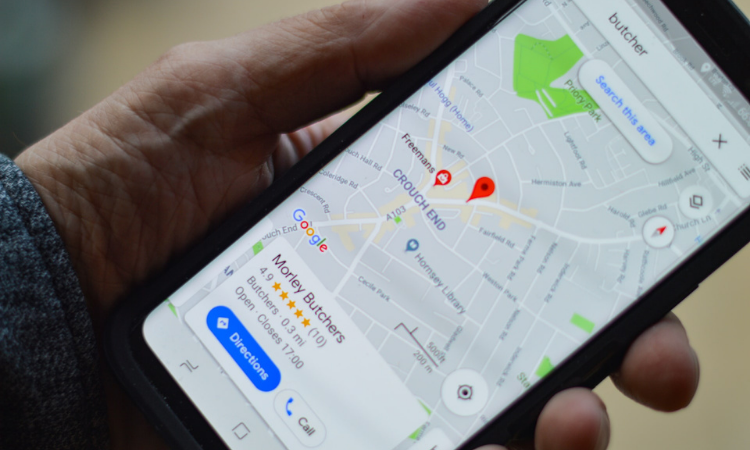Big Tech has changed the world by spurring technological progress. However, some government leaders don’t have a positive view of these companies and want to break them up.
But if Big Tech is pushing the world forwards, why are governments so keen to curtail the power of these enormous tech outfits?
What Is Big Tech?
Big Tech collectively describes the most prolific and prosperous technology companies in today’s marketplace. Facebook, Apple, Google, Microsoft, and Amazon (often referred to as the Big Five) are the brands most commonly given this identifier, but some sources include others, such as Twitter, Samsung, and Netflix. In addition, Chinese companies such as Alibaba, Tencent, and Baidu are also referred to as big tech firms. However, they are positioned as competitors to the Big Five rather than included within the same umbrella.
Big Tech’s Beginnings
Big Tech companies didn’t always have such a massive influence on society. When Facebook launched in 2004, only Harvard University students could use it, followed by expanding to other universities and high schools. It took until 2006 for the company to open usage to people without educational institution-related emails.
At Apple’s founding in 1976, leaders sought to make computers a mass-market product. It was one of the world’s best-known brands by the 1980s. However, in 1996, the company lost $867 million and was on the verge of bankruptcy. Products such as the iPod, iPad, and iPhone helped Apple regain traction beyond the PC market.
When Google launched in 1998, its founders worked from a garage. Even in those early days, though, the leaders took unconventional approaches, including when the whole staff took time off from work to go to the Burning Man festival. Employees also followed a “Don’t be evil” value at the company (which was quickly dropped, for one reason or another).
Amazon got its start solely as an online book retailer in 1994. A year later, Jeff Bezos needed desks for his small staff. He realized that doors cost less than desks and had workers use those instead.
These examples show the lack of early, immediate indicators of Big Tech’s success. However, things have changed, and these companies now affect sectors other than technology. The already large and growing influence makes some government leaders cautious.
Big Tech Companies Use Data for Profit

Big Tech companies often provide free resources. For example, there’s no subscription fee required to do a Google search or have a Facebook profile. However, large tech companies gather customer information and use it to profit. For example, Facebook collects information about users’ race, religion, and political views. It can then sell that information to advertisers.
People often want to know what Big Tech does to prevent issues with data collection and advertising. Unfortunately, evidence shows it often falls short in policing the ads shown on the respective platforms or lacks appropriate controls. For example, Facebook advertisers could target people interested in illegal activity.
Evidence also emerged of foreign countries purchasing misleading ads to influence elections in the United States. More recently, ads nurtured people’s interest in COVID-19 “cures” and helped the anti-vaccine movement flourish.
These reasons and others cause people in power to point out that Big Tech regularly mishandles people’s data. Even if those companies do not experience breaches, the applications for user information by third parties raise eyebrows and strengthen the arguments to lessen the power such businesses have.
On the other hand, data collection generally enables more personalized services. If someone searches for all-natural house cleaning products on Google, they’ll usually see ads related to those items, which could assist people with their purchases. Similarly, Google and Apple collect information about how customers use their smart assistant services to increase future accuracy.
Big Tech Limits the Market Access of Smaller Companies

Another argument against Big Tech is that such companies make it harder for smaller entities to enter and compete in the marketplace. Big businesses shape how people use the internet and the avenues they go through to get what they need.
In 2020, the U.S. Department of Justice filed a complaint against Google for its alleged exclusionary agreements that prevent other search engines from gaining marketplace traction. Officials discussed how Google engaged in anticompetitive practices to extend its monopolies in the search engine and advertising industries.
More recently, European Union regulators put Apple in the hot seat. They took issue with its anticompetitive App Store practices, saying they affected music streaming companies and app creators. Developers must use the company’s in-app payment system and not inform customers of other options.
Small-business advocacy groups also call on governments to restrict Amazon, complaining that the e-commerce giant’s resources help it dominate less-established entities. It particularly took issue with Amazon’s in-house brands and how products sold under them are often cheaper than competitors offer, drastically undercutting the market.
Big Tech can also help smaller companies, however. For example, the Google Play Store and Apple’s App Store give lesser-known developers a larger platform, making it easier for customers to find their products. Also, Amazon’s Marketplace opens opportunities for small companies to sell items on Amazon and let the e-commerce site fulfill those orders. As a result, products often reach customers faster than they otherwise would.
Big Tech Can Impact Government Decisions and Operations

The name recognition associated with Big Tech companies convinces many government authorities to use services offered by those providers. Google, Microsoft, and Amazon have numerous government agencies as customers. Amazon Web Services (AWS) even offers a specific cloud service for government entities.
However, in February 2021, three whistleblowers warned that Amazon does not keep its cloud-stored data sufficiently safe. Such shortcomings affect government clients and all other people who have information stored with the company. In addition, sources say the company has grown so fast that representatives have no idea what information Amazon holds or where to find all of it.
Multiple U.S. senators also raised the alarm that cybercriminals associated with the recent SolarWinds hack utilized AWS technology to run the malware that affected numerous agencies, including the U.S. Department of Defense and the Department of Homeland Security.
Evidence suggests that Big Tech companies aided the Indian government in targeting climate activists and curbing information access. People argue that inaction in regulating Big Tech could limit expression and content distribution while putting citizens at risk.
Big Tech companies’ interactions with the government can also create beneficial situations for everyone, though. For example, Google and Apple partnered to develop a privacy-focused contact-tracing solution during the COVID-19 pandemic. Businesses have also offered resources to help governments reach vaccine-hesitant groups during immunization campaigns.
Big Tech Companies Have Incredible Influence

Big Tech companies have so much power and resources that their impact spreads far beyond single entities. For example, Facebook owns Instagram and WhatsApp. Its acquisitions include a drone manufacturing company, a video software brand, and a street-level imaging service.
Plans from Google, Apple, and Amazon to develop health services or collect patient data also show the growing influence of these companies. Such growth often blurs the lines between once-distinctive industries. For example, people in select areas can pay for parking and transit fares through Google Maps. Apple’s engineers want to break into the electric self-driving car market.
Starting in 2017, Facebook assisted employers with publishing job openings via the platform. Amazon worked on an internal hiring algorithm that ultimately showed bias against women.
These entrances into multiple markets and industries back up government officials’ claims that Big Tech has too much power. However, that’s not the universally held opinion. Many government bodies invite these companies to meetings that entities with less influence cannot attend.
As Big Tech companies exert power in more areas, positives become apparent, too. Increased technological investments and commitments to innovation are some examples. For example, Facebook’s involvement in campaigns to increase internet access could decrease the digital divide. Still, their intentions aren't always benevolent, as seen with its Indian internet scheme that placed the companies services at the center of the internet, leaving potential users little choice but to hand data to the company.
These businesses also research ethical uses for artificial intelligence, achieving progress while reducing potential dangers.
No Easy Path Forward for Regulating Big Tech
These examples highlight some valid reasons governments are pushing back to decrease Big Tech’s influence or rein in its power. However, regulation is not straightforward. Individual government leaders must decide how to go about limiting impact and in what areas of society. New antitrust laws in the US aim for Big Tech, but how effective they are remains to be seen.
Given Big Tech’s advantages described here, breaking up the respective companies could end those benefits. Any party with the influence to realistically reduce this corporate dominance must weigh the pros and cons before any final decisions occur.
![How to Find IMSI Number on iPhone [Helps with iOS Unlock][Updated] data:post.title](https://blogger.googleusercontent.com/img/b/R29vZ2xl/AVvXsEjLjHwhnfUXNJTuiylqmlurhLRVAEVi803j6xcnvN8EZwF5_XUynz1y0Ko-vwpx6O3nT5hogTELahedGzgQpXM5Y99fcBliinyBu8ACw8_DVV3FpPLkIqR0u7v_HM39rAkpV5MyJiG1h5s/s72-c/find+imsi+iphone.jpg)